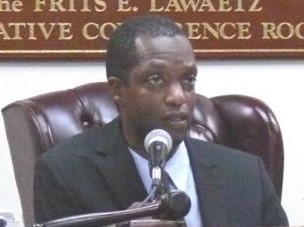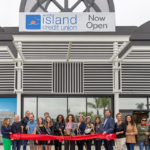NEW YORK–(PRNewswire)–With multiple recent terrorist incidents in the news, and the issues they raise driving heated discussion in the latest Presidential debates, it may come as little surprise to hear that terrorism currently leads the list of issues Americans want to see government action on: 24% of U.S. adults name it – without prompting – among the top issues for the government to address.
This represents fourfold growth since November of last year (when 6% named it as a top issue) and is on par with December 2001, when 22% of Americans named this issue in the wake of the September 11, 2001 attacks.
These are some of the results of The Harris Poll of 2,252 U.S. adults surveyed online between December 9 and 14, 2015.
Terrorism is far from the only issue on Americans’ minds, though. The economy is behind it by only the narrowest of margins, with 23% naming it (down marginally from 25% a year ago). Meanwhile, 19% point to immigration, including mentions related to refugees; though this has been a frequent topic throughout the ongoing Presidential election cycle, immigration mentions are actually down a bit from 24% last November.
Further down the list, Americans are only half as likely as they were last year to point to Healthcare (13%, down from 26%) and employment/jobs (10%, down from 20%) as top issues to address. National security mentions, on the other hand, have increased threefold in that time (from 3% in November 2014 to 9% today).
Further down the list, 7% of Americans mention ISIS/ISIL, 6% each point to education and the environment while 5% each cite gun laws/gun control, the income or wealth gap, the national budget/government spending, and the budget deficit/national debt.
Preferential priorities
There are some differences in what tops the list depending on who is responding:
- Millennials’ top concern is the economy, while Gen Xers, Baby Boomers, and Matures all see terrorism as the top issue to address.
- Immigration is second on Millennials’ and Matures lists, while the economy is in second place among Gen Xers and Baby Boomers.
- Men are most likely to point to the economy, followed by terrorism, with the order flipped among women. Immigration fills the third slot among both groups.
- Conservatives and registered Republicans both put terrorism (followed by the economy) at the top of their respective lists; the economy is tops among Moderates, Liberals, and registered Democrats and Independents, followed by terrorism.
Direction of the country
Fewer than three in ten Americans (29%) believe things in the country are going in the right direction, down from the low-to-mid 30%s seen over the past several months. It’s on par with last December though (when it was 30%), as well as being exponentially stronger than the 5% of Americans expressing this sentiment at this point in the last Presidential race (a time when much of our nation’s ills are brought front and center on the debate stage).
Presidential and Congressional ratings
A country’s course is set, at least in part, by its leaders – so if the country is seen as going off course, what say Americans of those at the wheel? Thirty-seven percent (37%) give President Obama positive ratings on his overall job performance, while 63% rate him negatively. Similarly, 36% rate him positively for his performance in relation to the economy, while 64% rate him negatively. In both cases this marks something of a drop from recent months (both positive marks have been hovering around the four in ten mark), but an improvement from a year ago (when 33% rated him positively overall and 34% did so for his performance on the economy).
- Breaking down registered voters, just under seven in ten Democratic voters give the President positive ratings both overall (69%) and on the economy (68%), while about seven in ten Independent voters (72% and 70%, respectively) and nearly nine in ten Republican voters (89% each) rate him negatively.
Twelve percent (12%) of Americans have positive attitudes toward the overall job Congress is doing while 88% rate them negatively; this is on par with positive ratings from recent months (10% in November, 12% in October) but up considerably from last December (when only 7% saw Congress in a positive light).
- Unlike the division seen in Presidential ratings, here voters across the political spectrum are in agreement, with vast majorities of Republican (88%), Democratic (85%) and Independent (93%) voters alike rating Congress negatively.
The Harris Poll was conducted online within the United States between December 9 and 14, 2015 among 2,252 adults (aged 18 and over). Figures for age, sex, race/ethnicity, education, region and household income were weighted where necessary to bring them into line with their actual proportions in the population. Propensity score weighting was also used to adjust for respondents’ propensity to be online.









